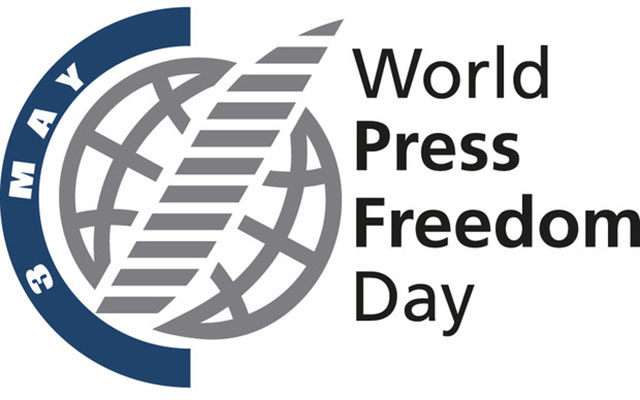Councils undoing gains of information free flow

Ruth Butaumocho
African Agenda
On May 3, thousands of journalists across the globe took time to celebrate World Press Freedom Day, an occasion for the media industry to reflect on issues of press freedom and professional ethics.
For Southern Africa, this year’s commemorations were unique as hordes of journalists celebrated the 30th anniversary of the Windhoek Declaration, which since its formation had emphasised freedom of information as fundamental.
This year’s universal theme: “Information as a Public Good”, could not have come at a better time following Government’s commendable efforts in ensuring the enjoyment of the right to freedom of information through the enactment of the Freedom of Information Act in 2020 in place of the highly contentious Access to Information and Protection of Privacy Act (AIPPA).
Stakeholders in the media sector have since applauded the new information law as a progressive step towards fostering citizens’ right to access information.
Other positive developments that coincided with this year’s World Press Freedom Day celebrations include the licensing of the country’s first-ever community radio stations and private commercial television stations, as well as campus radio stations.
To demonstrate Government’s commitment to press freedom values of access to plural and diverse media services, the Broadcasting Authority of Zimbabwe (BAZ) has since issued licenses to community radios and private television stations.
Such developments are crucial in enhancing diversity and pluralism in the broadcasting sector, while ensuring citizens’ right to access information as a public good that assists in making informed decisions and choices.
While naturally the focus on World Press Freedom Day is usually on the modus operand of the media, which critics always keenly scrutinise and hammer on the lop side of the Fourth Estate, this year’s theme called on all sectors to provide information to the citizenry for its own good.
While progressive institutions are seized with availing information as a public good, local authorities in Zimbabwe are parochial and have remained in the Stone Age era, where they still believe in monopolising public information.
Rather than take cue from Government’s relentless efforts to enhance and improve channels of communication and information to the citizenry, actions by some local authorities have been retrogressive.
They have over the years reneged on its public mandate to avail information to its wide and diverse clientele.
Far from fulfilling their mandate of providing good service to ratepayers and its various stakeholders, the majority of local authorities in the country have become renegades and a law unto themselves if their shenanigans that are being reported in the media are anything to go by.
By their nature, the mandate of local authorities is to work with communities to develop strategic visions for their cities and towns, while assisting the Government in the implementation of a wide variety of policies to promote national development.
Such a role requires congenial local authorities that are responsive to the needs and aspirations of its customers, more so when information has to be disseminated to the citizenry.
However, this has not been the case, amid concerns that several local authorities have become lawless institutions, which now have low regard for the same constituencies they are serving, forcing residents to approach the courts for reprieve.
In a recent development, Karoi residents took their council to court demanding to be given the local authority’s master plan within 48 hours.
In April, the Karoi Residents Trust, Karoi Resident Urban Association and Progressive Karoi Residents through their lawyers, the Zimbabwe Lawyers for Human Rights (ZLHR) filed a court application demanding the council’s master plan.
In their application, the residents said they wanted the master plan to stop the haphazard land usage by the council in a bid to protect wetlands and waterways in the farming town.
Although the courts are yet to come up with a determination on the matter, the escalation of the matter to the courts shows the acrimonious relationship between the two, which should not be the case considering both are imbued with same interests.
In yet another development, Chinhoyi Municipality is at loggerheads with the Chinhoyi Residents Trust, for withholding information on developmental projects to the residents.
The widening information gap between local authorities and the ratepayers can be albatross to development as attested by the mismatch of councils’ activities and what residents want.
Failure to avail information to its public resulted in Chitungwiza Municipality scoring zero when the council, which serves a population of close to three million, was in 2020 ranked as the most secretive institution in the country by a survey conducted by the Media Institute of Southern Africa (MISA) Zimbabwe’s 2020 Transparency Assessment Index.
The survey was carried out with intent to measure and encourage organisations to effectively use online platforms to disseminate information to the public taking cognisance of the new law on access to information, the Freedom of Information Act.
Chitungwiza ranking was also based on the findings of assessments on whether public institutions proactively make relevant information available online in the form of websites or social media accounts.
It further evaluated the degree to which information is made available to citizens upon request, and how responsive the municipality is to requests for information by either the media or the residents.
During the survey, Chipinge Rural District Council (RDC), Chitungwiza Municipality, Environmental Management Agency (EMA), Mutare City Council and Zimbabwe School Examinations Council were among the institutions that were assessed.
Chitungwiza Municipality had the worst ratings out of the 10 institutions surveyed.
Such a ranking is a sad and unfortunate development for a city that has been in the news on allegations of corruption, embezzlement of funds and illegal parcelling out of state land.
Until local authorities commit to improved governance systems to upholding and enforcing anti-corruption efforts, residents continue to suffer due to lack of basic services such as water.
With corruption cases proving to be notoriously difficult to investigate and prosecute, public institutions need to open up and be more transparent about their work.
The media and other outlets for information need to raise awareness on the importance of the Freedom of Information Act in 2020, which mandates public institutions to provide information on their activities.
Gone are the days when information was sacred and only a privilege to a few.
With reports of corruption in local authorities growing at an alarming proportion, information has become a necessary public good to combat corruption and mismanagement of public funds.
Feedback: [email protected]










Comments